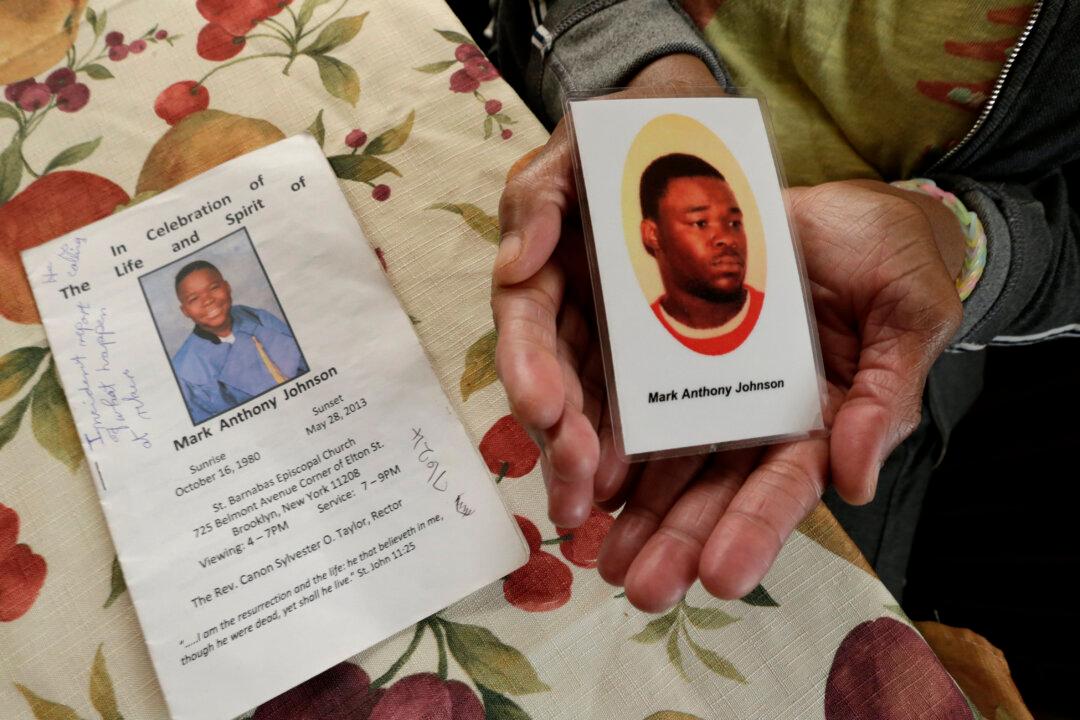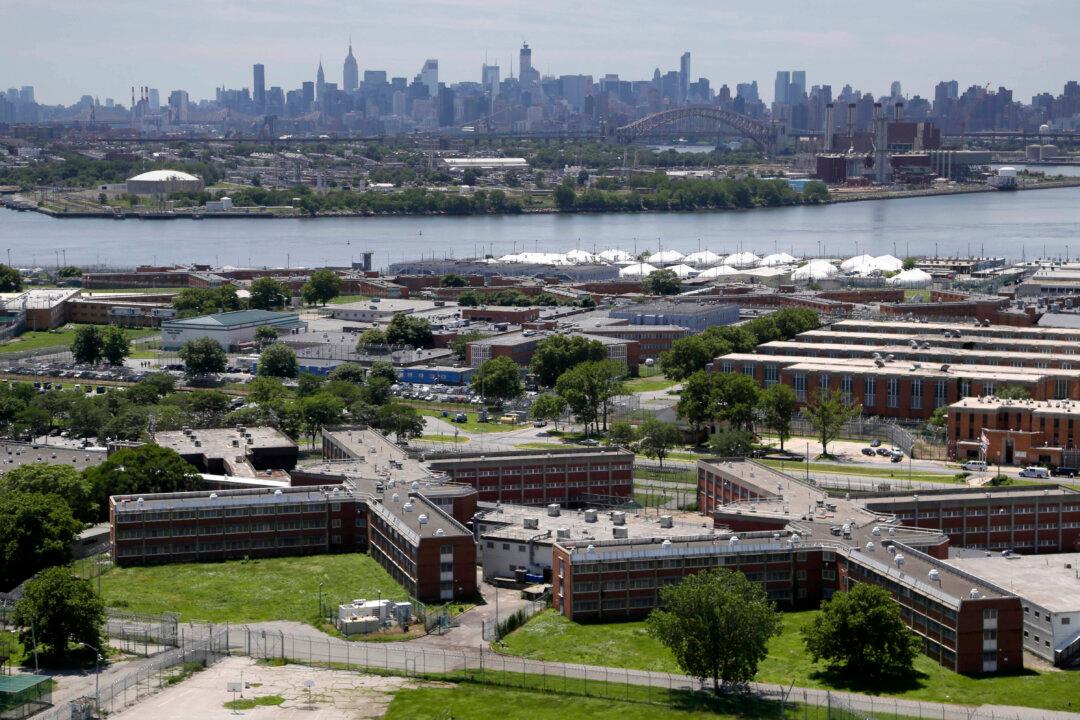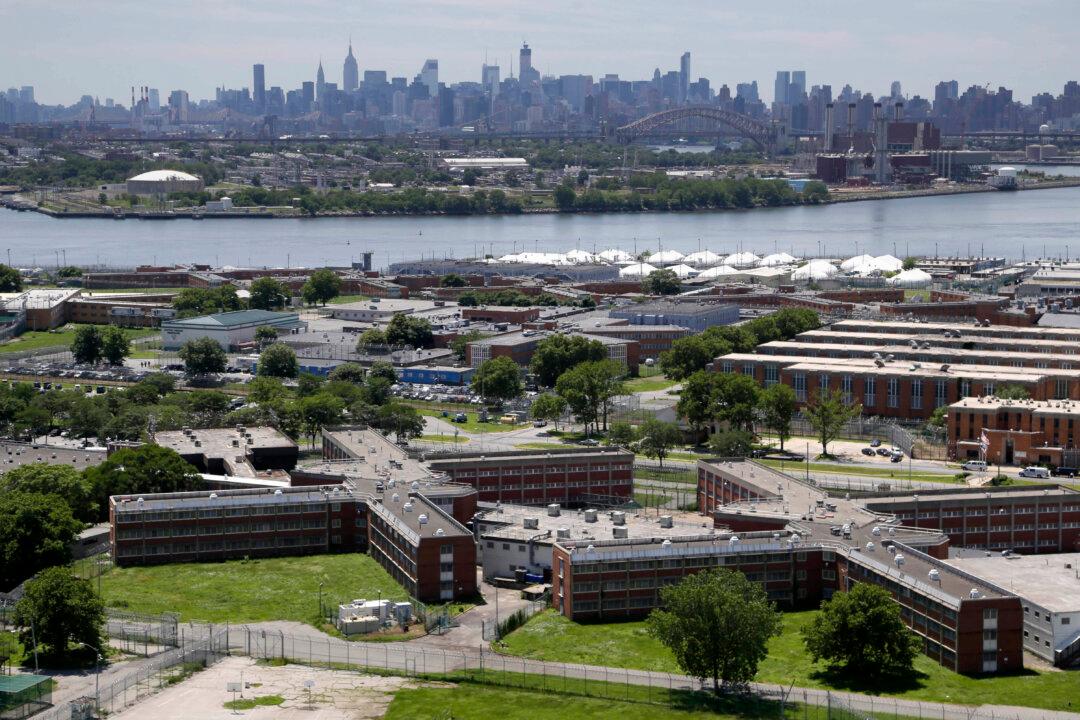NEW YORK—New York City’s reform-minded jails commissioner is facing opposition to his plan to put the 250 most dangerous inmates in a new, restrictive cell block on Rikers Island that would allow them to be locked away for up to 17 hours a day.
Correction Commissioner Joseph Ponte says the $14.8 million “enhanced supervision housing” would help reduce violence by assigning extra guards to monitor and control the inmates responsible for most problems.
To make it happen, Ponte needs a nine-member jail oversight board to sign off on rule changes that would allow guards to lock the inmates in their cells for 17 hours a day instead of 8, restrict their access to the law library, and monitor their mail without warrants. A public meeting on the matter was set for Tuesday.
But six advocacy groups have written letters to the board saying that Ponte’s plan is overly broad and could violate inmate rights.
They also were troubled by an Oct. 24 letter Ponte sent to state regulators saying his previously announced plans to reform the use of solitary confinement at Rikers were contingent upon the board’s approval of the new housing unit for dangerous inmates.
Ponte’s proposed solitary reforms include ending 23-hour confinement for 16- and 17-year-old inmates by Dec. 31, expunging time owed in solitary for inmates who earned the days in previous stints, placing a 30-day cap on solitary sentences, and introducing so-called solitary “lite” for medium-level infractions.
“We’re concerned because it appears his reform agenda begins with restrictive housing,” said Jennifer J. Parish, an attorney at the Urban Justice Center’s Mental Health Project. “He’s holding solitary reform hostage to the enhanced housing.”
Initially, Ponte proposed his plan for the restrictive housing unit by asking the board to exempt it from six city rules. The stiff opposition to that approach resulted in the board’s chairman saying that Ponte’s proposal would instead be addressed as part of the more cumbersome rule-making process.
Ponte, the former head of corrections for the state of Maine, was credited with reducing the use of solitary confinement in that state by two thirds. He was brought in by Mayor Bill de Blasio earlier this year to reform New York City’s 11,000-inmate system, which has been plagued by violence and struggles dealing with a growing population of mentally ill prisoners.
Union leader Norman Seabrook said he supports Ponte’s housing plan, adding he would be accompanied at Tuesday’s meeting with correction officers who had been assaulted by inmates in the past.
From The Associated Press
NYC Jail Boss Wants New Block for Toughest Inmates
NEW YORK—New York City’s reform-minded jails commissioner is facing opposition to his plan to put the 250 most dangerous inmates in a new, restrictive cell block on Rikers Island that would allow them to be locked away for up to 17 hours a day.

June Broer displays a funeral program and a prayer card featuring images of her only son, Mark Johnson, in Paterson, N.J., on Oct. 18, 2014. For days, Johnson demanded medical care from jail guards at Rikers Island as he continued to have bloody stools before he died of a bacterial infection. AP Photo/Julio Cortez
|Updated:



